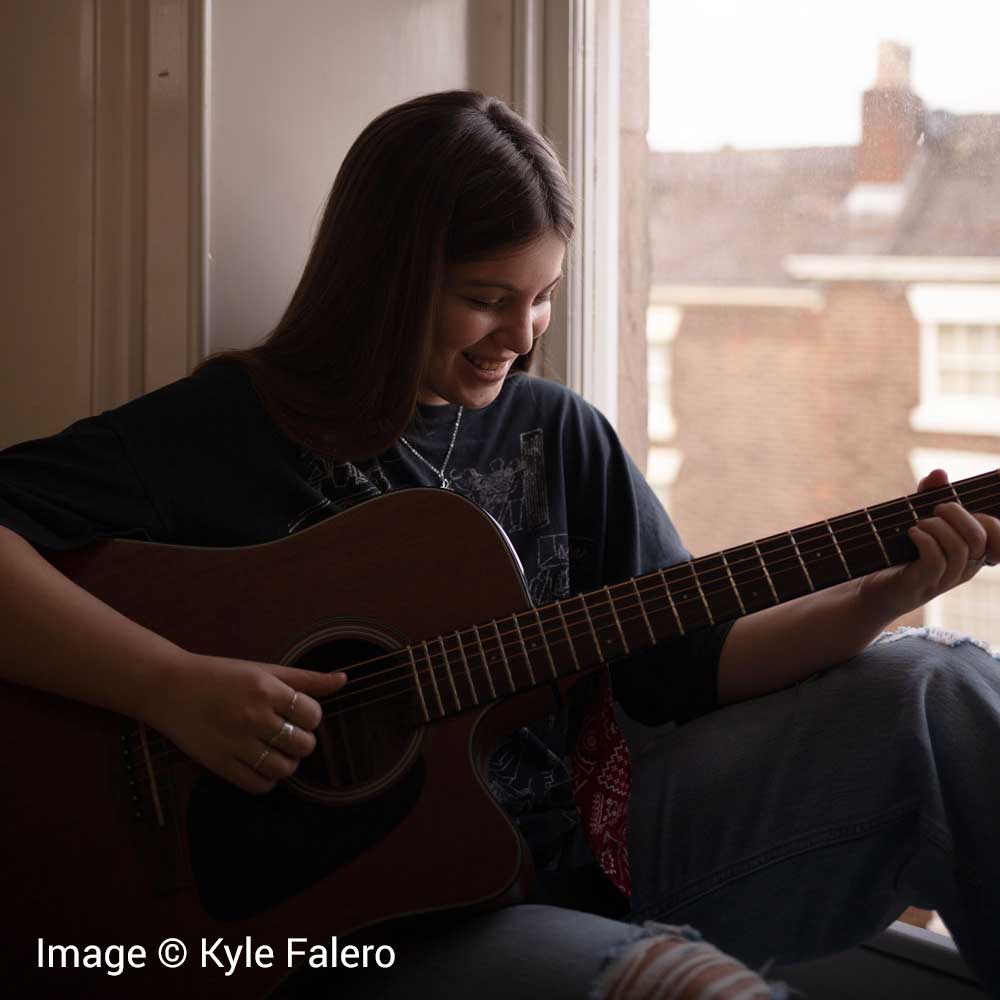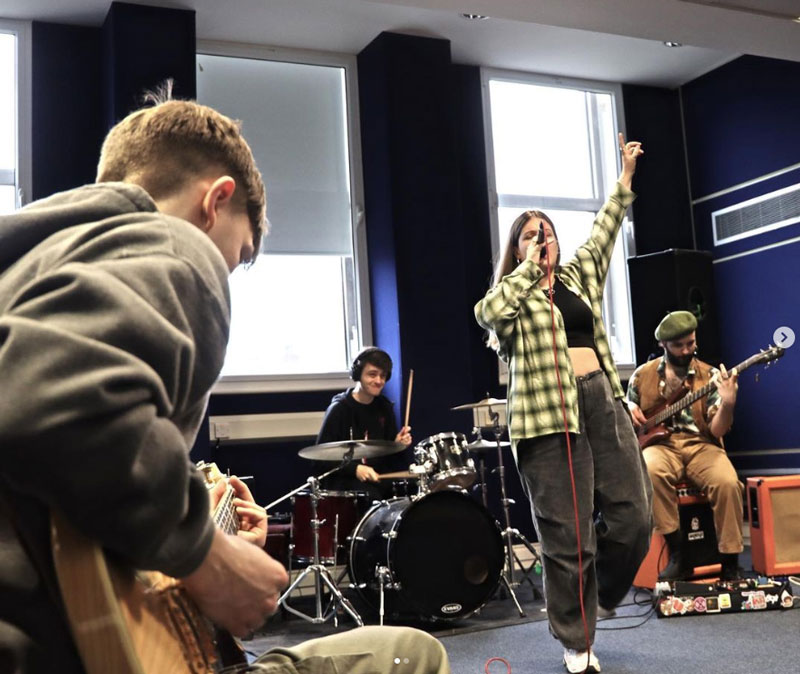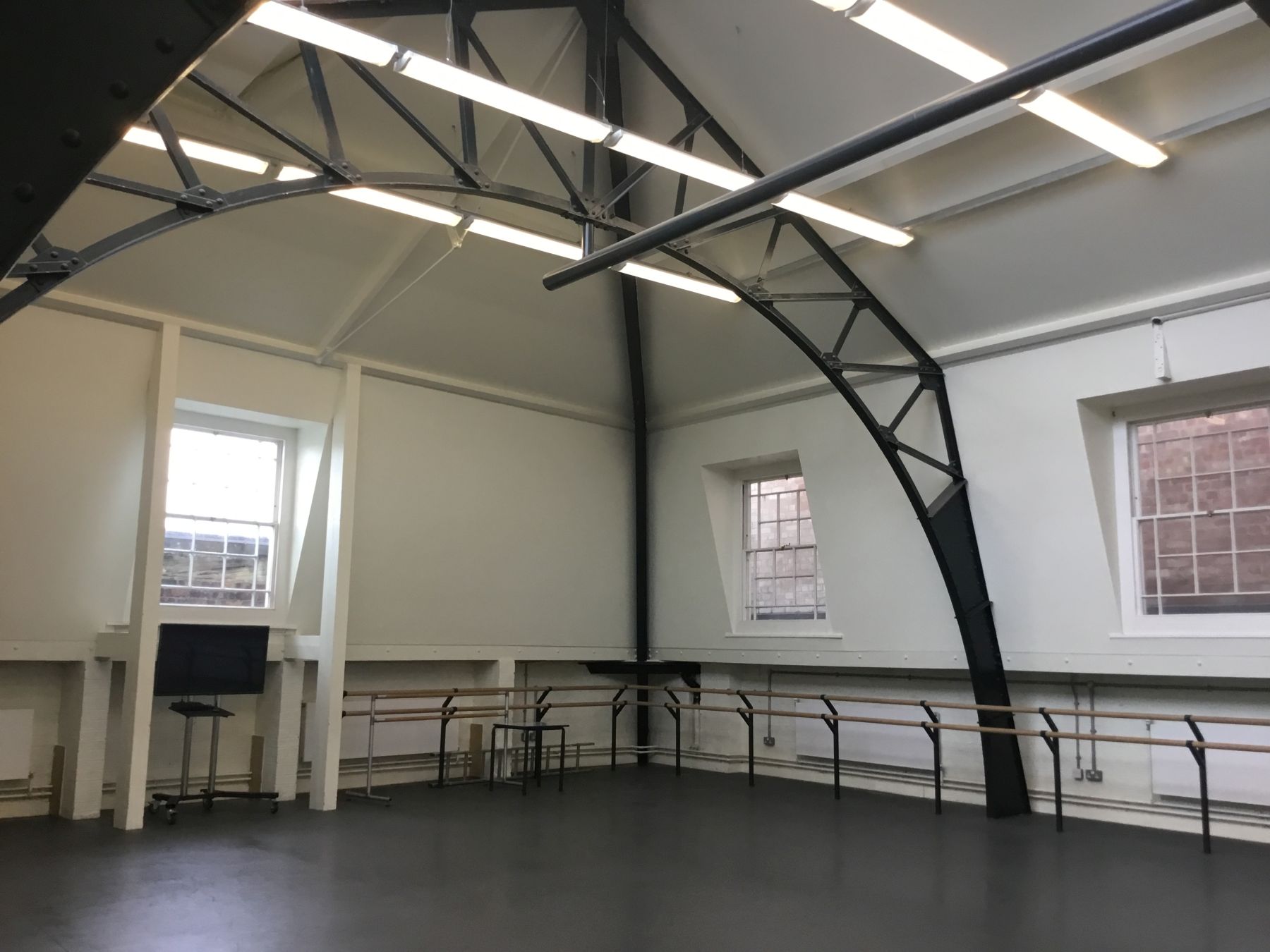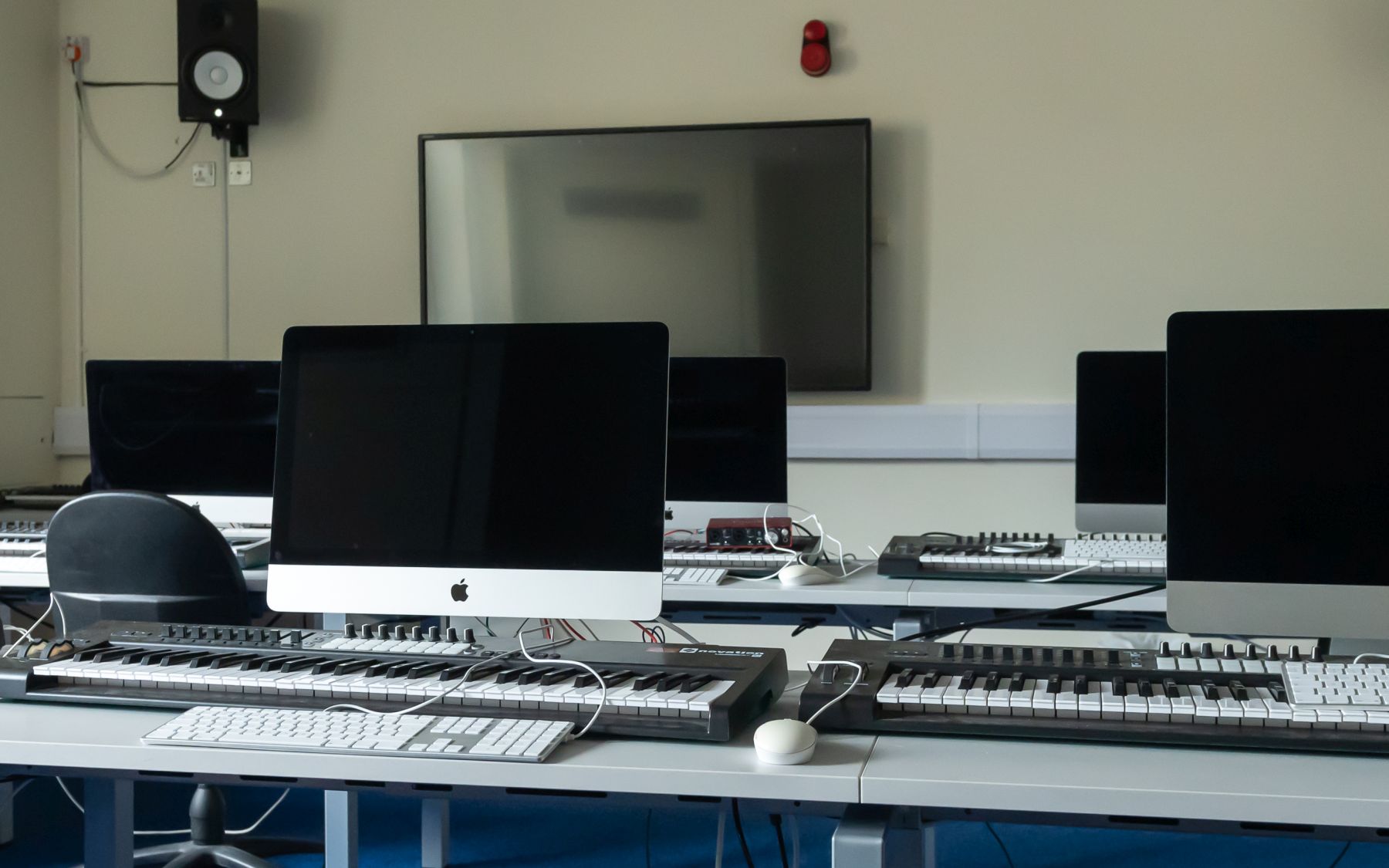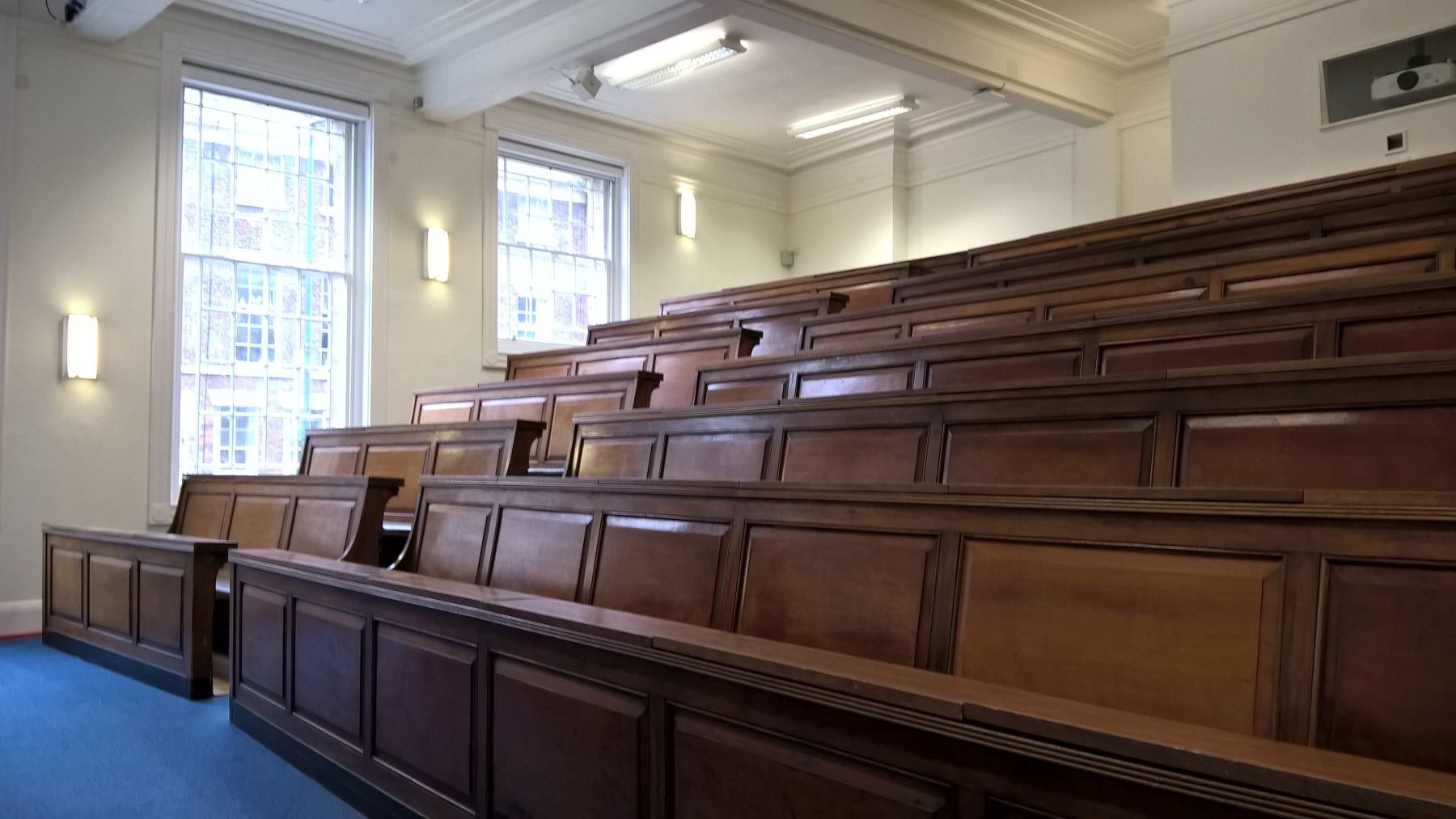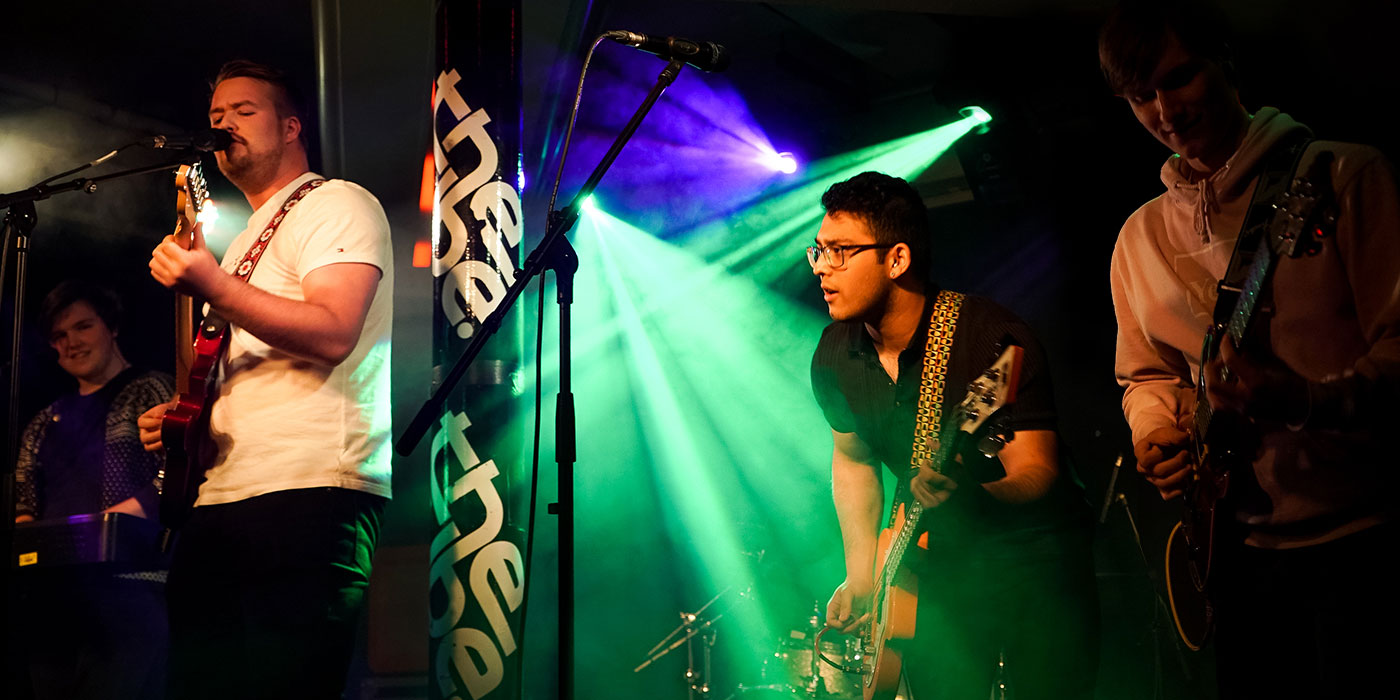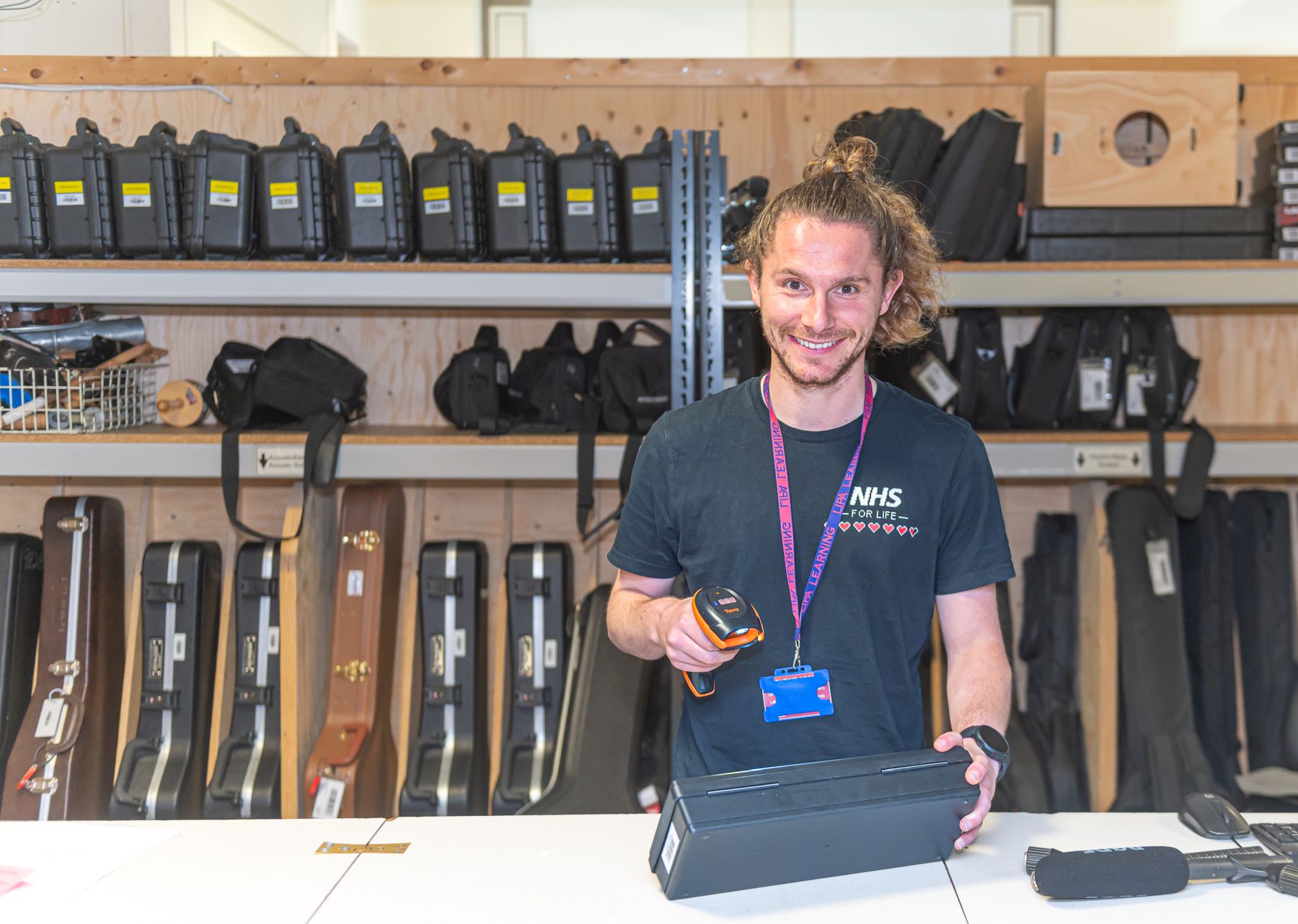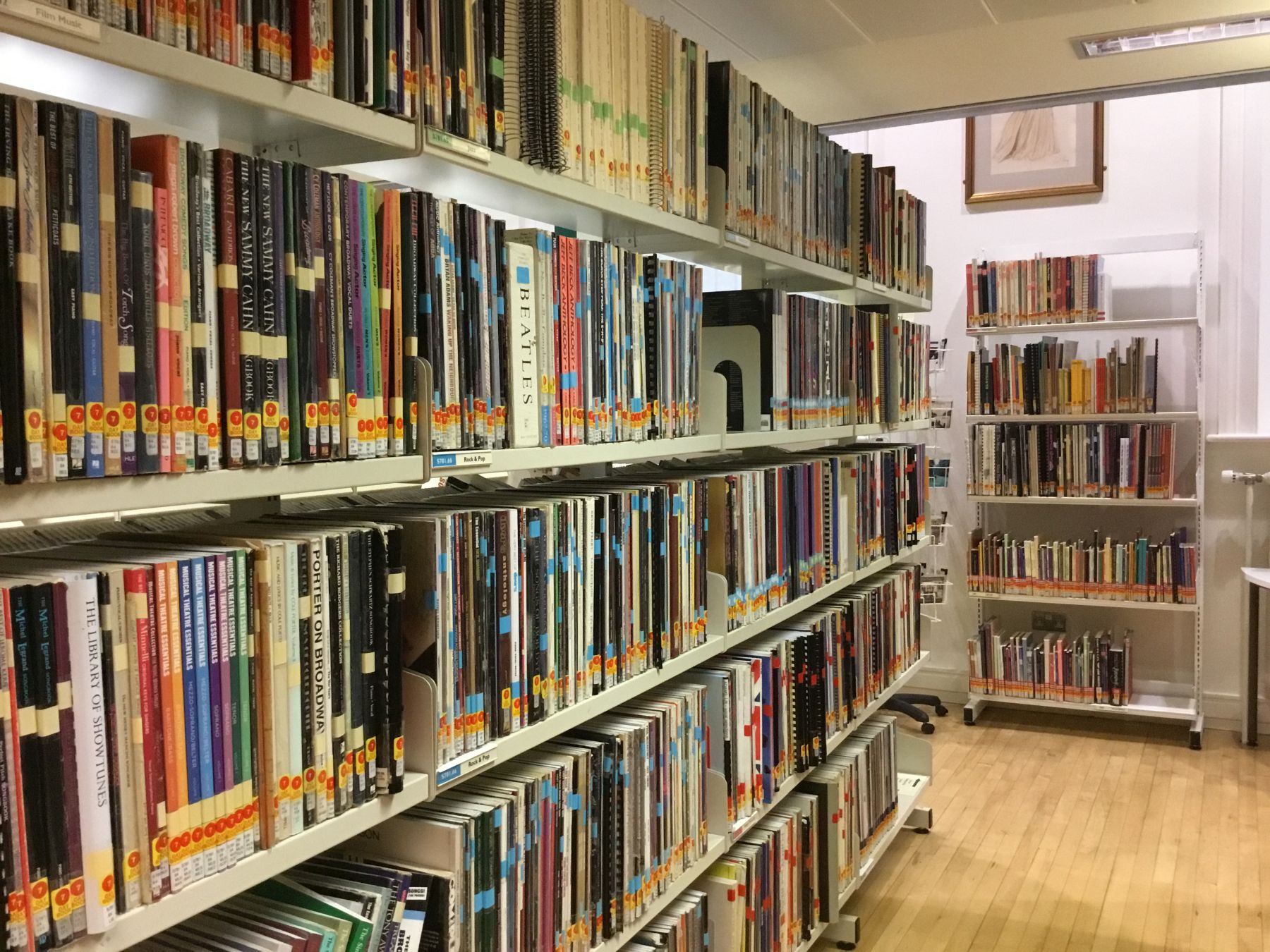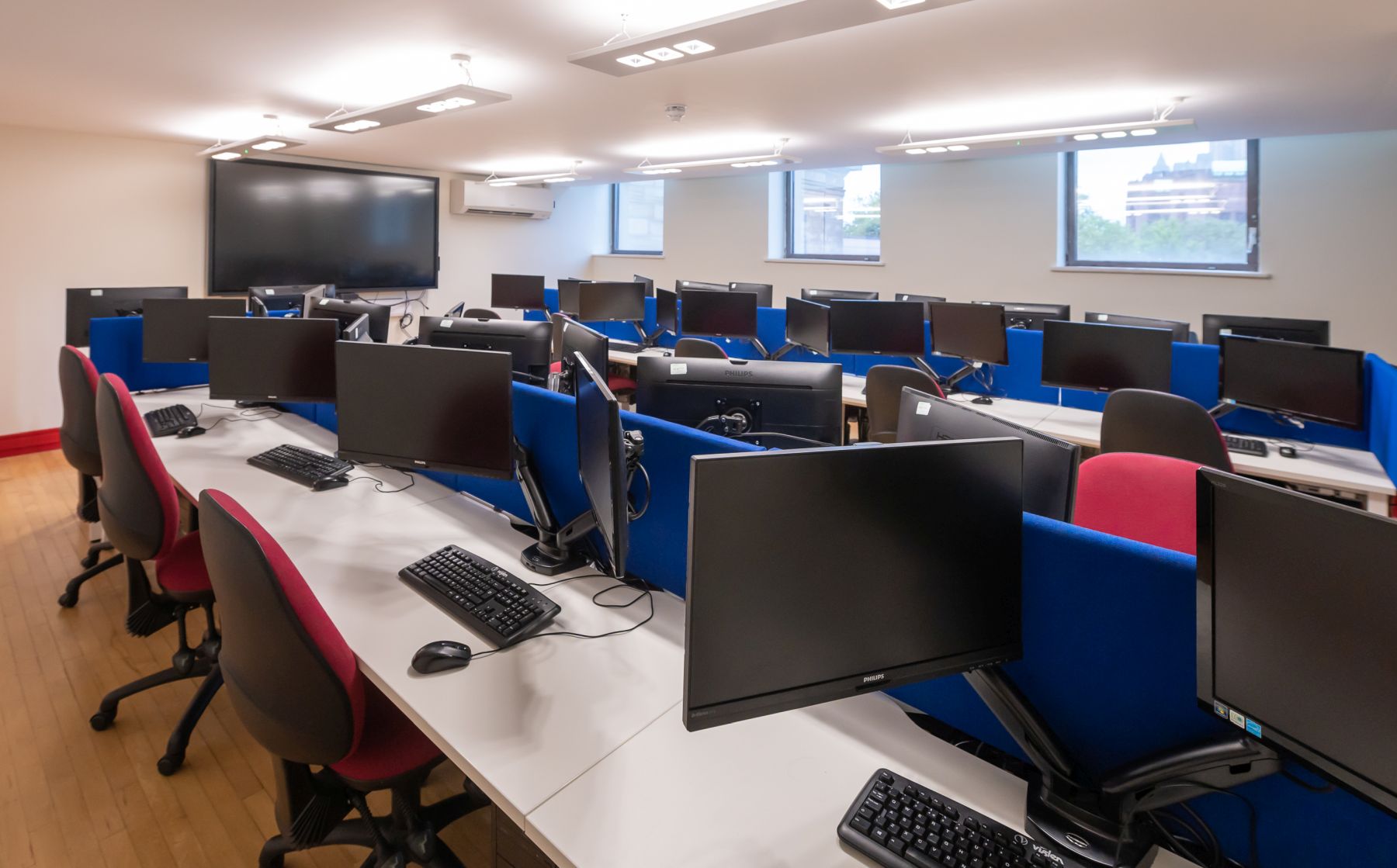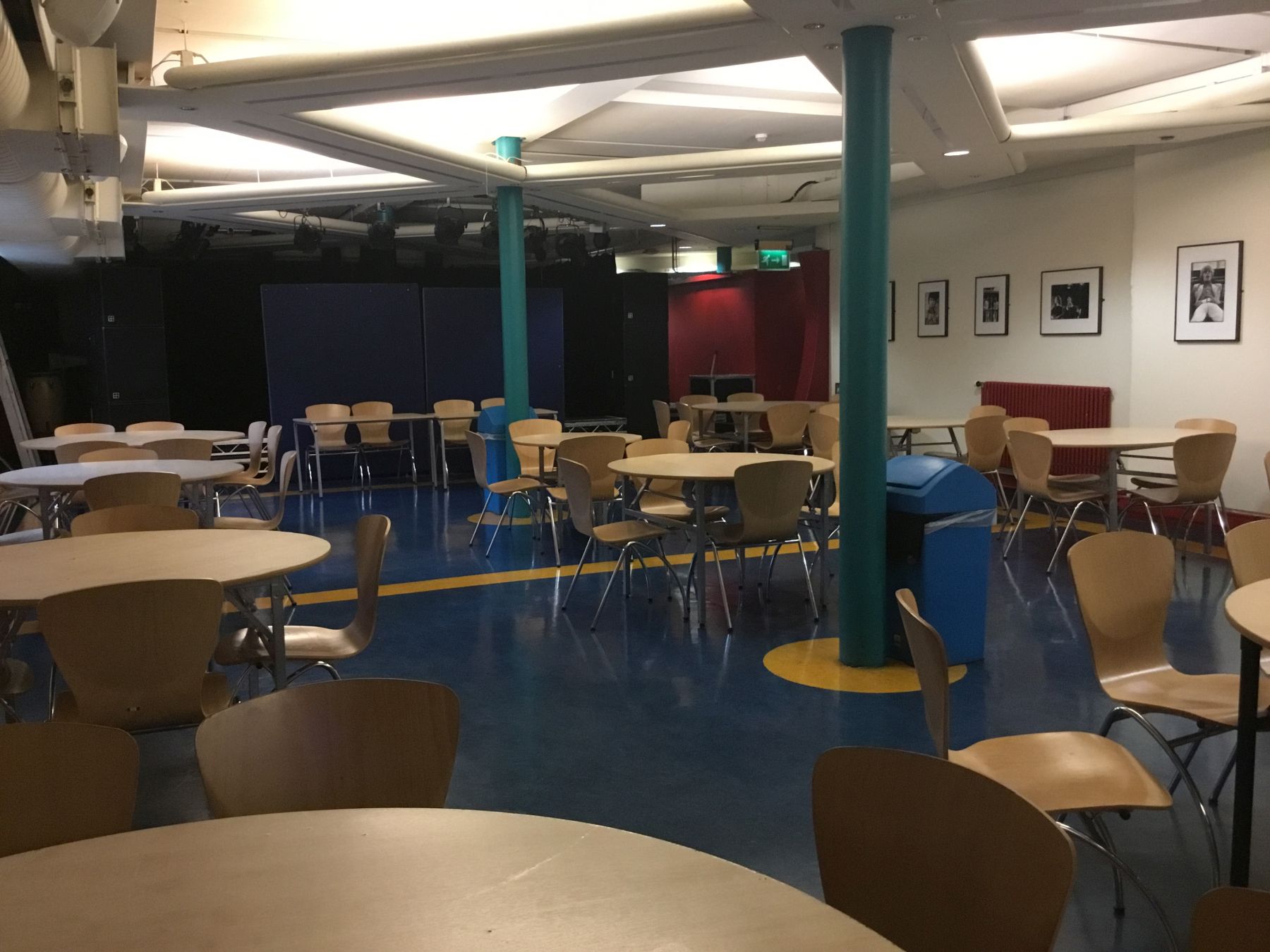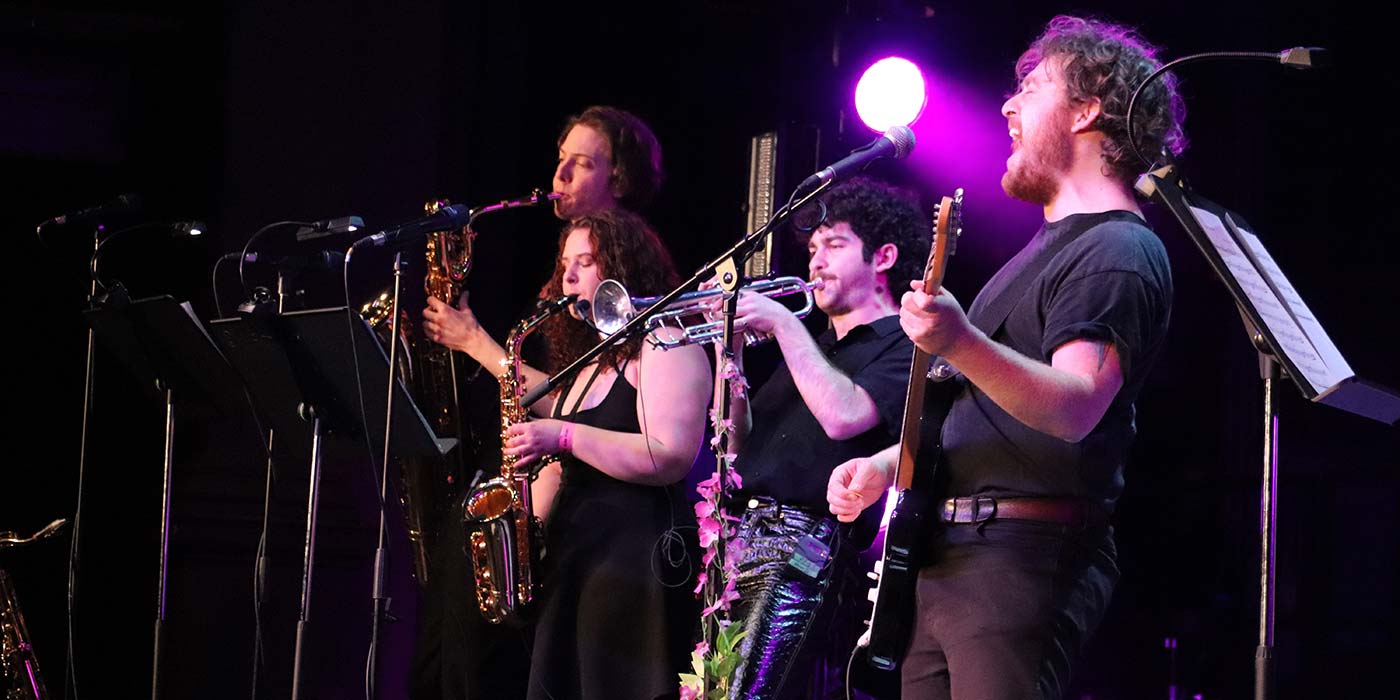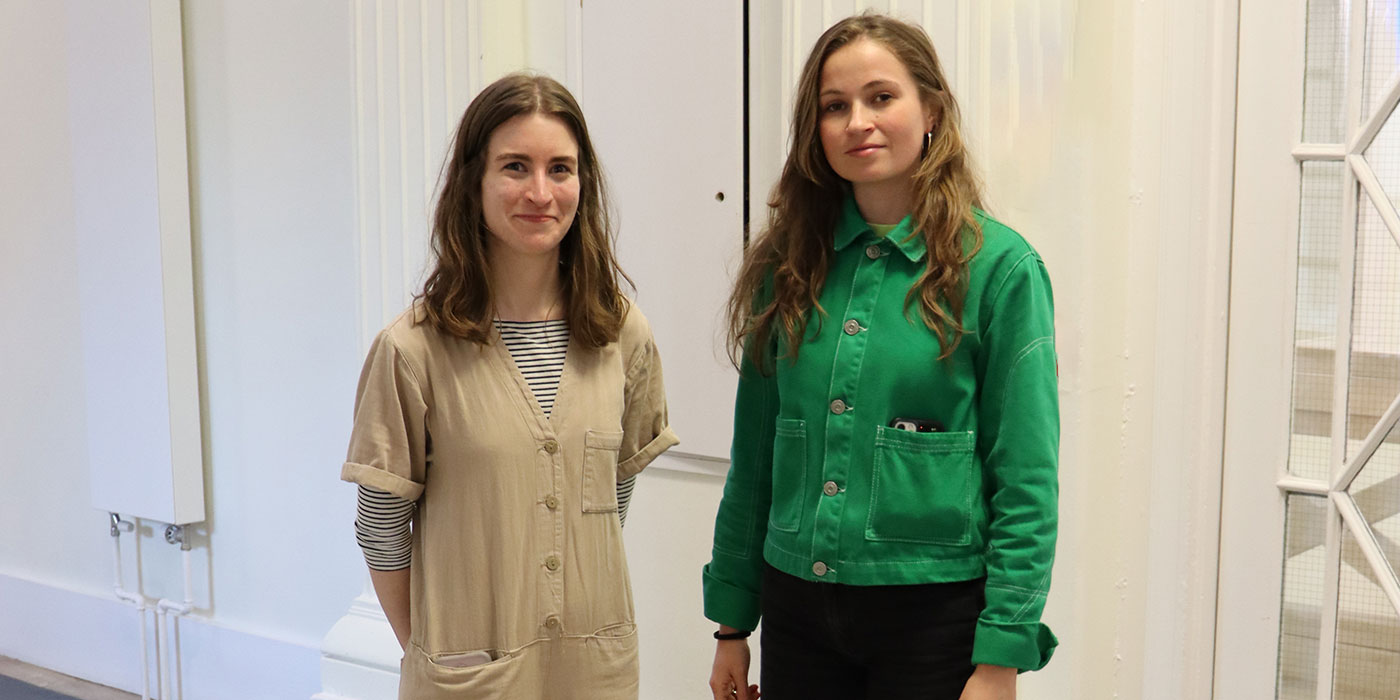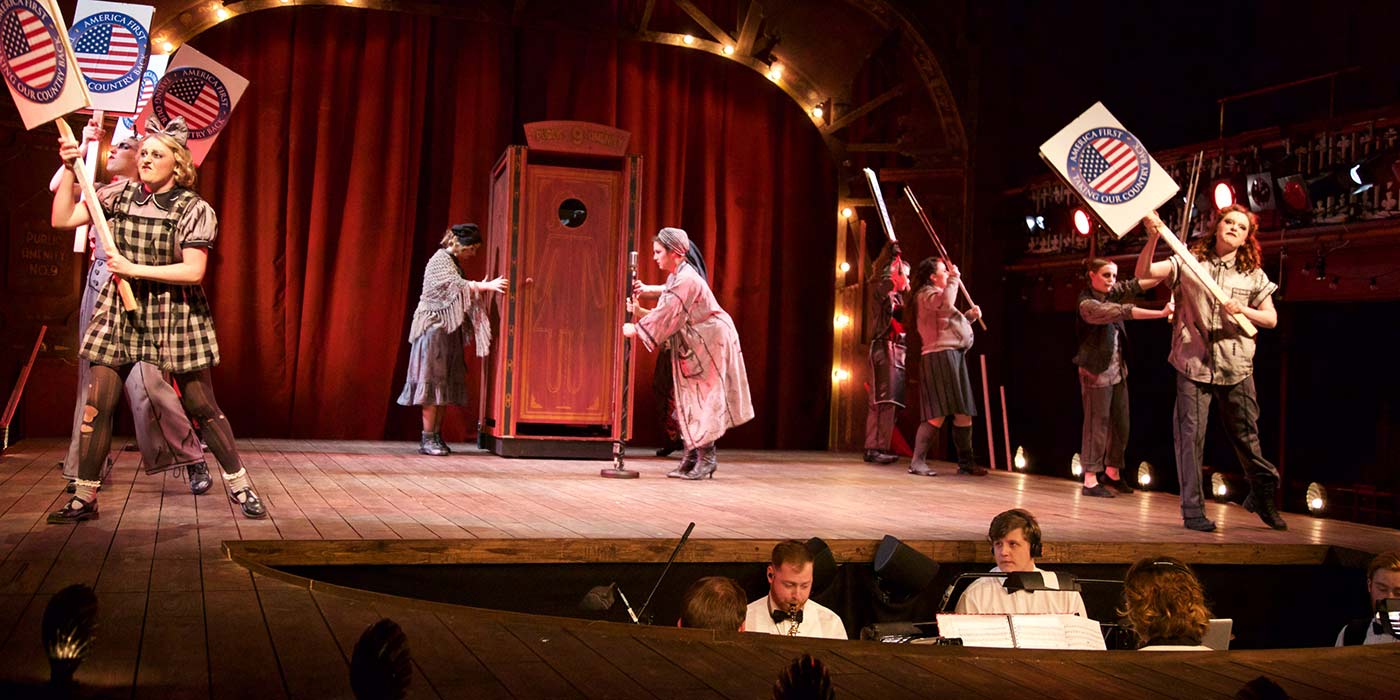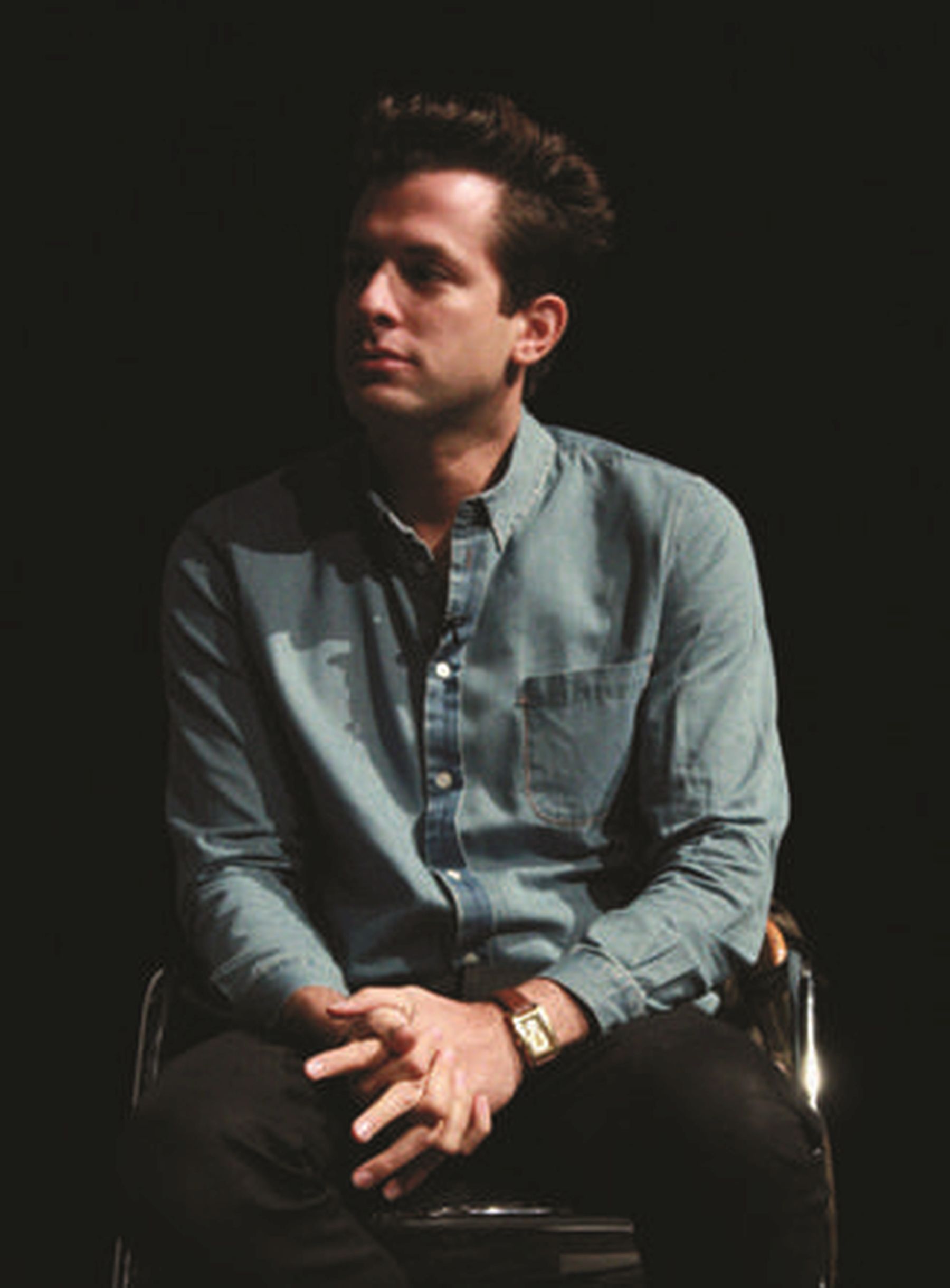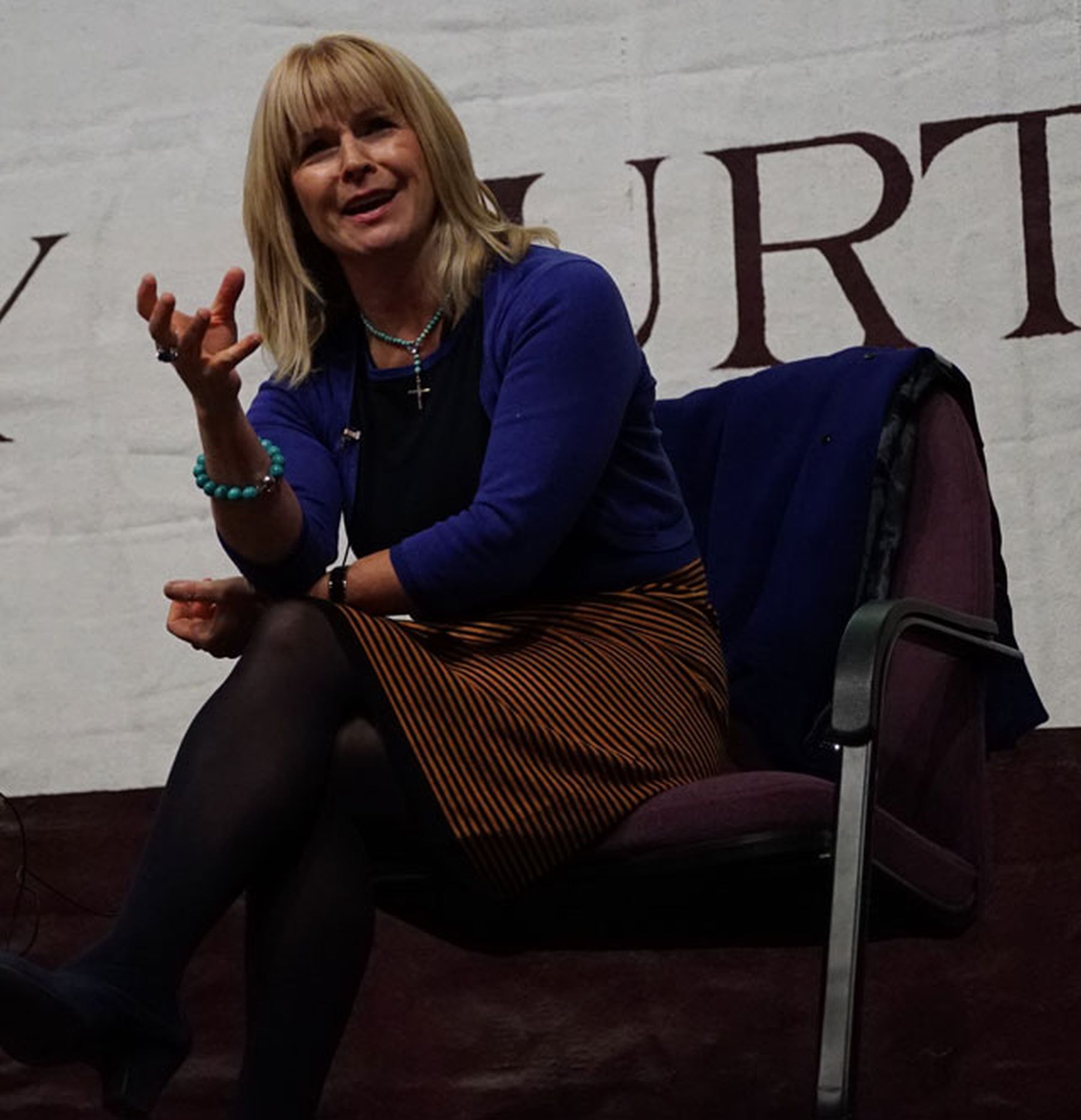Course
Overview
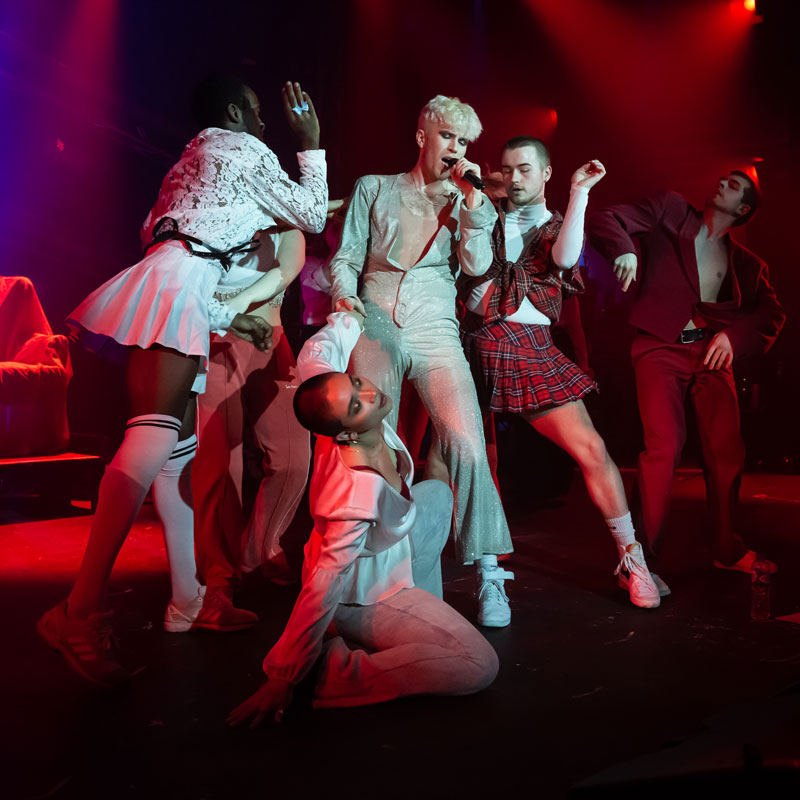

This course combines one-to-one vocal technique classes, vocal group work, performance and movement and dance workshops. This makes it the right choice for strong vocalists who want to pursue a career as a lead singer, vocal group member, backing vocalist or session singer.
Expert one-to-one vocal tuition and movement dance and performance workshops develop your performance skills and stage craft.
This is supplemented by group vocal performance workshops; aural, rhythmic and music tech skills workshops; and opportunities to gain an understanding of music theory. You will develop your practical and business skills which support you to achieve your professional and creative goals. You will also gain a deeper understanding of core popular music academic and research skills.
You train in, and draw inspiration from, a diverse, culturally eclectic, creatively experimental and industry relevant learning environment. You can collaborate with musicians working across an exciting variety of genres and styles, as well as dancers, filmmakers, engineers and live music managers. You will benefit from regular visits from industry guests, masterclasses, A&R showcases and auditions.
Performance opportunities include bi-weekly Songwriters’ Showcase and Jukebox Shuffle (live covers with house band), weekly live band gig nights for new original music, and 2ube Xtra, an annual showcase festival of around 50 original live band performances in the Paul McCartney Auditorium. Vocal ensembles and choir also appear in public shows including the annual Christmas Concert at the Liverpool Philharmonic Hall.
You will graduate with an impressive and distinctive portfolio of performances showcasing your creativity and collaborations with songwriters, musicians and technicians.
What You Will
Study
Vocal Technique 1
This module enables you to develop specific vocal skills and techniques. One-to-one weekly vocal lessons run for twenty-four weeks and are enhanced by weekly workshops in vocal repertory for singers.
Contemporary Pop Performance skills 1
This module provides vocal students with movement and dance skills to enhance their performance. Weekly commercial dance classes and vocal a cappella group rehearsals enhance singers’ performance skills.
Music Skills 1
This module provides you with a range of skills to support your development as a musician. These sessions are made up of aural skills seminars to develop your recognition of chords, scales, intervals, melodies and rhythmic patterns. Rhythmic awareness seminars to develop your overall awareness and literacy of rhythm with an introduction to Latin-American and West African percussion. Improvisation workshops where you apply aural and rhythmic awareness skills as you work within Jazz and Popular Music settings, and repertory workshops where you develop your interpretive skills with an opportunity to apply them in performance settings.
Music Professional and Creative Practice 1
Through this module, you bring together elements of what you have learned this year in practical projects. You develop and plan a range of appropriate professional and experimental projects based on your own music-related objectives. These could include songwriting, production, observed band rehearsals and performances. You also learn about how the music industry operates, including copyright and intellectual property, and music contracts and agreements. Your experiences on this module enable you to develop your planning and problem-solving skills.
Popular Music Studies 1
In this module, you explore how current popular music is created, mediated and consumed, within the music industry and broader socio-cultural contexts. Focusing on specific examples of current popular music, you become familiar with the relationships between music and its contexts, and the ways in which these relationships are understood, explained and debated. You also develop your research and writing skills and knowledge of academic conventions such as referencing.
Vocal Technique 2
This module helps you to further develop specific vocal skills and techniques as well as general performance related skills. One-to-one weekly vocal lessons run for twenty-four weeks and are supported by vocal repertory workshops for vocalists.
Contemporary Pop Performance 2
This module provides vocal students with further movement and dance skills to enhance their performance. These weekly commercial dance classes and vocal group rehearsals provide you with an outlet for combined vocal and dance performances.
Music Skills 2
In this module you develop a range of music skills designed to enhance and support you in your work, study and development. Varied weekly classes cover applied aural skills, transcribing recorded songs, arranging techniques, music technology and studio induction, music notation software, and choir.
Music Professional and Creative Practice 2
Through this module, you have further opportunities to apply your musical skills to practical projects. These could include collaborations with other subject areas here, playing in a pit band, session playing or developing your own individual project. You identify and plan different musical projects which link to your career ambitions, with your work allowing you to demonstrate your progression as an artist. Through all of this activity, you refine skills which will support you as you embark on life as a professional musician, including business and career planning.
Popular Music Studies 2
In this module, you analyse the visual aspects of musicians’ promotional materials and practices, focusing on examples of image, fashion and style, performance and music video. You become familiar with a range of analytical approaches, and become able to use lenses such as genre, identity and authenticity to analyse and contextualise examples of popular music visuals. You develop your academic skills, becoming more familiar with independent research and academic writing conventions.
The Solo Performer
This module focuses on the further development of the individual performer on their vocal specialism. It builds upon and applies the skills and technique from your first and second year. Over the course of the year, you are required to plan, execute and evaluate performance-led projects, leading to a final performance. One-to-one hour long vocal lessons continue on a weekly basis. Vocal repertory workshops support student projects.
The Contemporary Pop Performer
This module builds upon and applies the skills and technique from your first and second year. Over the course of the year, you are required to plan, execute and evaluate performance led projects, leading to performances of devised pieces.
The Music Professional
Through this module, you explore how you will pursue your career ambitions as a professional musician. You review realistic employment and self-employment opportunities and create a professional portfolio which reflects these, while considering industrial factors, marketing, legal and budgetary considerations. To support your career prospects, you develop appropriate promotional materials. There is additional focus on financial planning and management, along with contracts and copyright and how these will impact on your work and ability to generate income.
Popular Music Research
In this module, you build on the theoretical knowledge and understanding, and research/writing skills, developed in Popular Music Studies 1 and 2, to undertake research into an aspect of current popular music that is personally and professionally relevant and useful to you. You carry out independent research using a wide range of sources to write a substantial essay, supported through a series of research and writing skills lectures, and regular individual tutorials.
How You Will
Study
-
One-to-one Vocal Tuition
-
Workshops
-
Group Work
-
Lectures
-
Seminars
-
Tutorials
-
Practical Projects
-
Performances
-
Masterclasses
-
Independent Study
How You Will Be
Assessed
Most modules are assessed by portfolio, performances and practical work. You also produce a final year research paper relevant to your practice and career.
Practical/written work ratio
80% practical work / 20% written assignments
View The
Staff
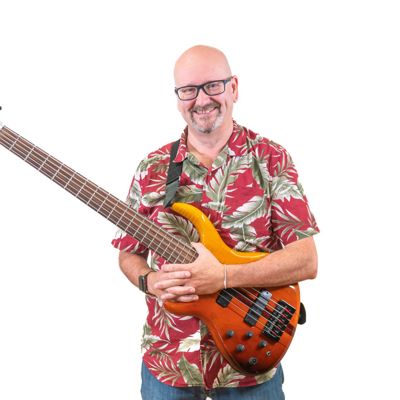
Tim Pike
Interim Director of the School of Music

Dr Helen Davies
Head of Music (Academic)
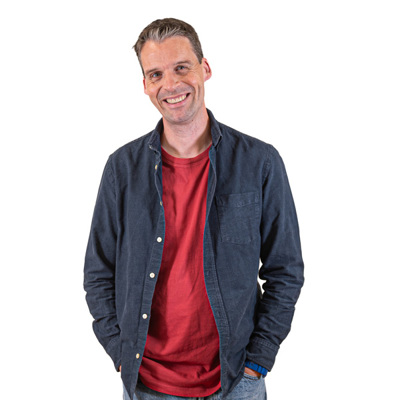
Dan Sanders
Head of Music (Creative & Technical)

Steve Parker
Senior Lecturer

Dr Dori Howard
Lecturer
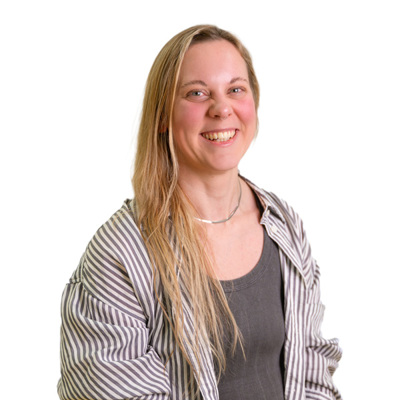
Dr Veronica Skrimsjö
Lecturer

Bob James
Lecturer
Paul Mitchell-Davidson
Lecturer
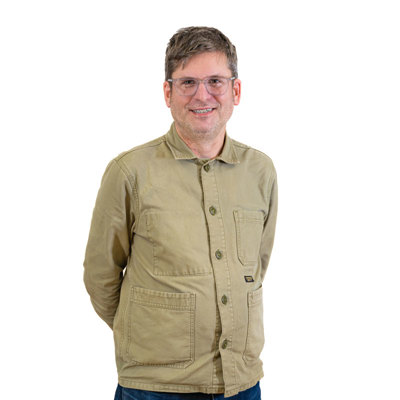
Joe Duddell
Teaching Fellow
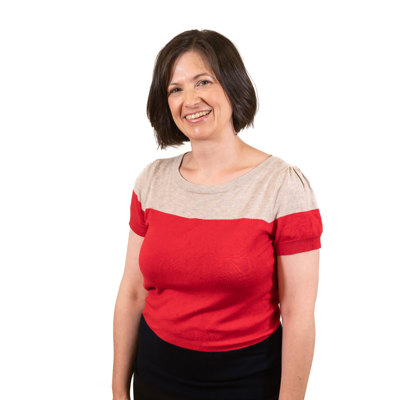
Kate Blair
Teaching Fellow
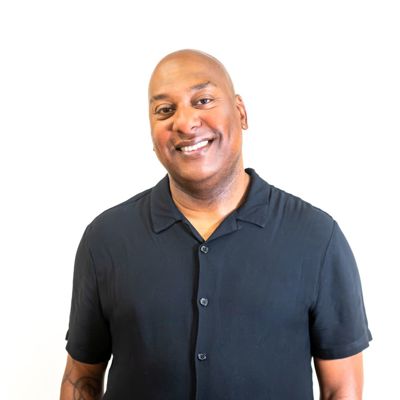
Carl Parris
Lecturer
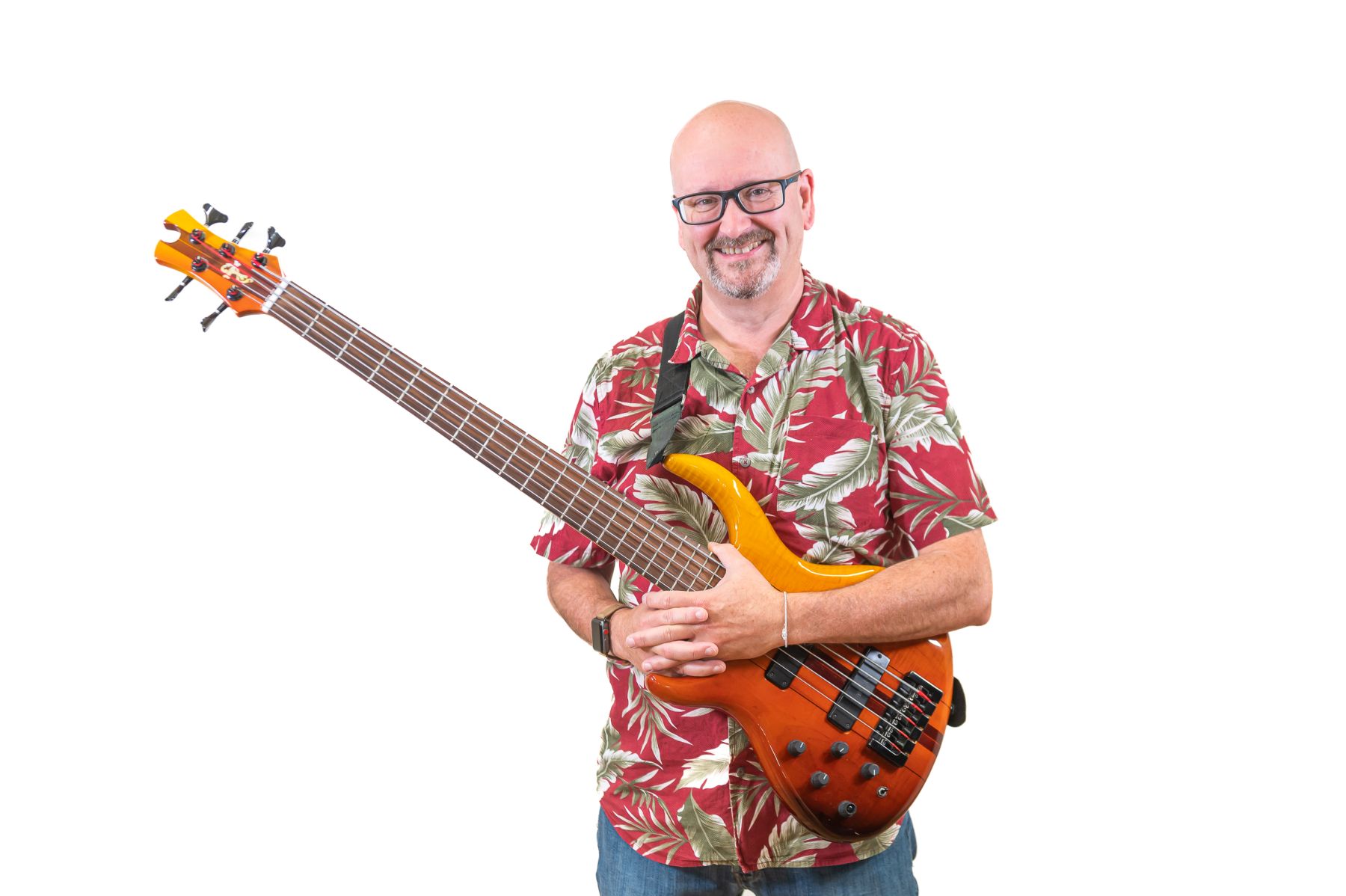
Tim Pike
Interim Director of the School of Music
Tim studied music at Breton Hall College starting on oboe but switching to bass guitar midway through. He is a multi-instrumentalist playing bass guitar, guitar, keys, saxes and double bass.
After graduating he embarked on a career as a session musician and teacher. As both a music-reader and improviser, Tim has performed in theatres in the UK, recording sessions in London, playing for theatre shows at the Edinburgh Fringe and many jazz gigs. He was invited to teach at two of the institutions that he had previously studied at, and teaching became the dominant passion. After completing his MA in 1994, Tim began full-time teaching at LIPA in 1995. Since then, as well as teaching, Tim has mainly focused on jazz gigs on bass guitar for pleasure. He also turned his hand to other varied projects including the pre-production and recording of music played at The Beatles Story exhibition, to performing with China Crisis, and editing the music manuscript for Bill Bailey’s songbook. He can currently be found playing bass in two big bands (one with a weekly residency), and also holding the bass chair at the Liverpool Jazz Club’s monthly sessions.
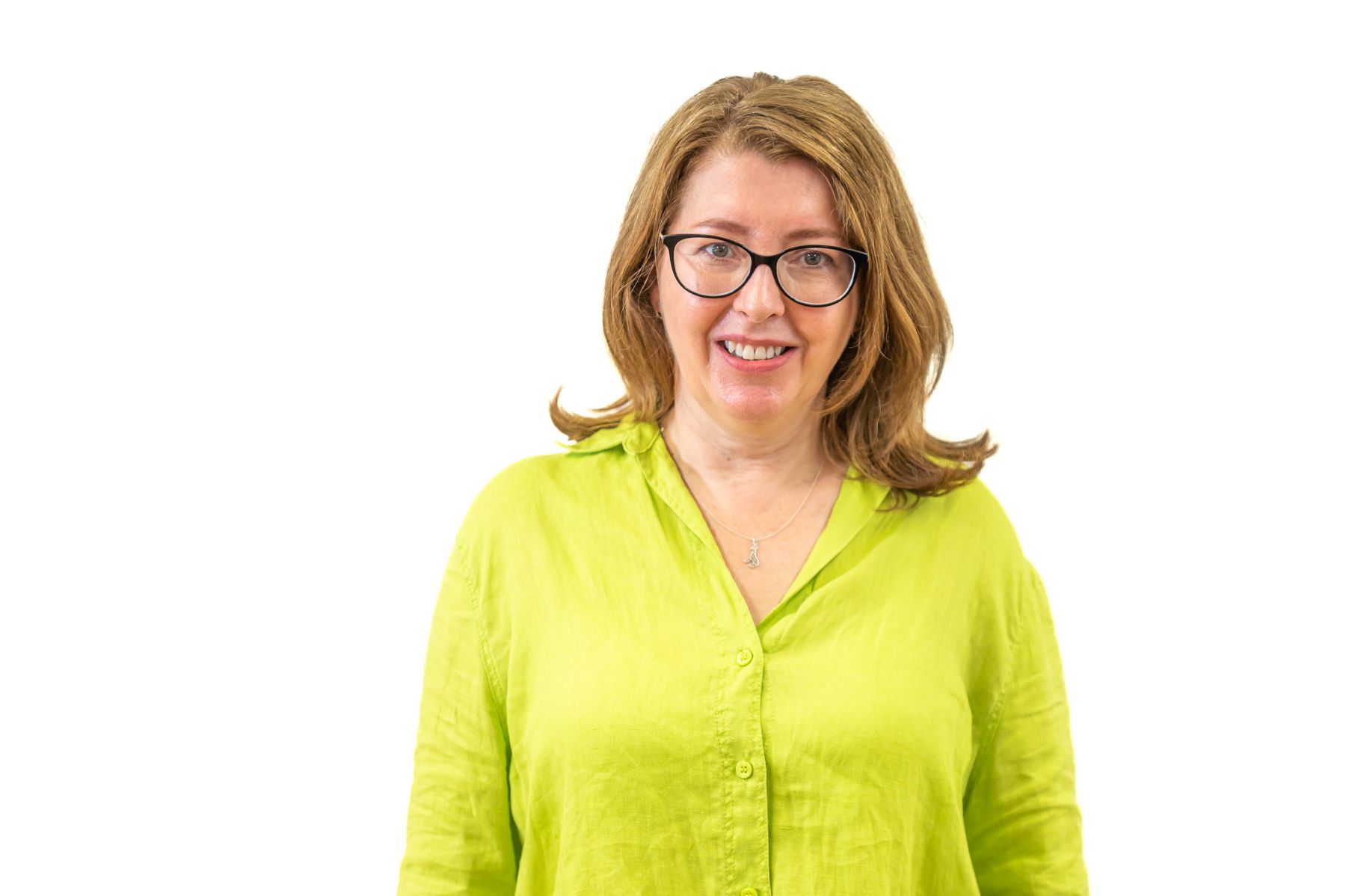
Dr Helen Davies
Head of Music (Academic)
Helen is a popular music researcher. Her key research interests are gender and sexuality, music education, music and visual creativity, music in everyday life and ethnographic research. Her doctoral thesis, ‘Music in the everyday lives of young teenage girls’ (University of Liverpool, 2011), is based on ethnographic research in domestic and school settings in Merseyside. More recently, she has researched gender related issues for young musicians studying on popular music higher education courses and/or in early career. Since 2019, she has collaborated with the organisation UK Music on their research into diversity in the UK music industry. Currently, she is researching visual creativities for musicians. Helen is a Fellow of the Higher Education Academy, a member of the International Association for the Study of Popular Music (IASPM), and an editorial board member of IASPM Journal.
Helen is responsible for the design and delivery of all academic and popular music studies modules on LIPA’s music degrees and foundation courses, including supervision and day to day management of a small teaching team. In these modules, students are encouraged to critically analyse their own and other musicians’ practice and explore aspects of popular music culture and industry that are relevant to them. Helen brings her research interests and scholarly experience to all aspects of her teaching.
Selected outputs
Book chapters
2022
‘How do I look? The importance of visual analysis for musicians in popular music higher education.’ In D. Walzer (ed.) The Handbook on Music Business and Creative Industries in Education. Sheffield: Equinox.
2021
‘Because I’m a girl’: exploring experiences, practices and challenges relating to gender and sexuality for female musicians in popular music higher education.’ In R. Mathias (ed.) The Routledge Handbook of Women’s Work in Music, pp.26-35. London: Routledge.
2019
‘Preparing for the ‘real world’? Exploring gender issues in the music industry and the role of vocational popular music higher education.’ In C. Strong and S. Raine (eds.) Towards Gender Equality in the Music Industry. Education, Practice, and Strategies for Change, pp.29-44. London: Bloomsbury.
Journal articles
2019
‘Gender issues in the music industry and popular music higher education: Exploring the experiences of young musicians.’ Miscellanea Anthropologica et Sociologica special issue: Music as a social phenomenon – theoretical concepts and empirical inquiries, 20/2, 211–227.
2013
‘Never mind the generation gap? Music listening in the everyday lives of young teenage girls and their parents.’ Volume! La revue des musiques populaires, 10/1, pp. 229-247.
Conference presentations
2022
‘Technological change, visual creativities, and popular music higher education.’ International Association for the Study of Popular Music UK & Ireland Branch Biennial Conference. University of Liverpool, 31 August-2 September.
‘UK Music Diversity Report 2020: the data behind the report and actions.’ UK Music - Music Academic Partnership Symposium. Online, 26 May.
2018
‘Preparing for the ‘real world’? Exploring the role of music education in addressing gender and sexuality issues experienced by young popular musicians.’ Association for Popular Music Education conference. Middle Tennessee State University, 24-27 June.
2017
‘Young musicians, gender and sexuality: researching the issues in an educational context.’ 1st Symposium of the LGBTQ+ Music Study Group. Edge Hill University, 27 May.
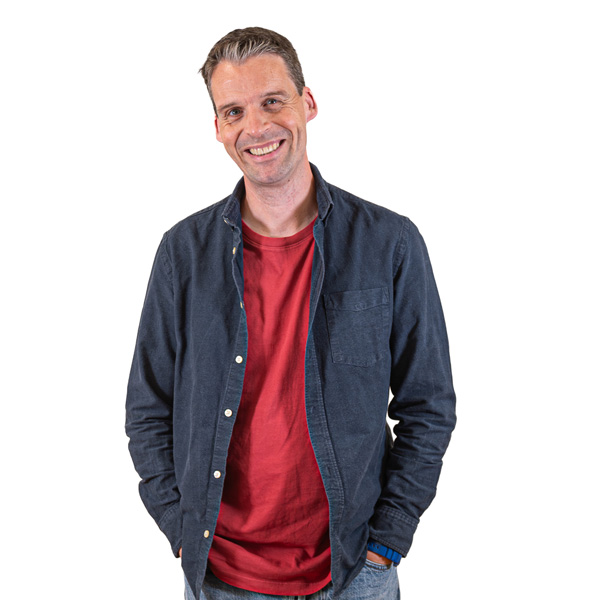
Dan Sanders
Head of Music (Creative & Technical)
MMus SFHEA Subject Leader, Music Production, School of Music
As a self-employed music professional, Dan delivered projects with major and indie labels for 15 years before joining LIPA full-time. Day-to-day negotiation with A&R, artist management and label executives plus a practice-based understanding of music rights shaped Dan's experience, allowing him to pick up multiple platinum sales awards for his production work along the way. Dan now looks at how the new generation of music entrepreneurs can meet the challenges of a changing music industry.
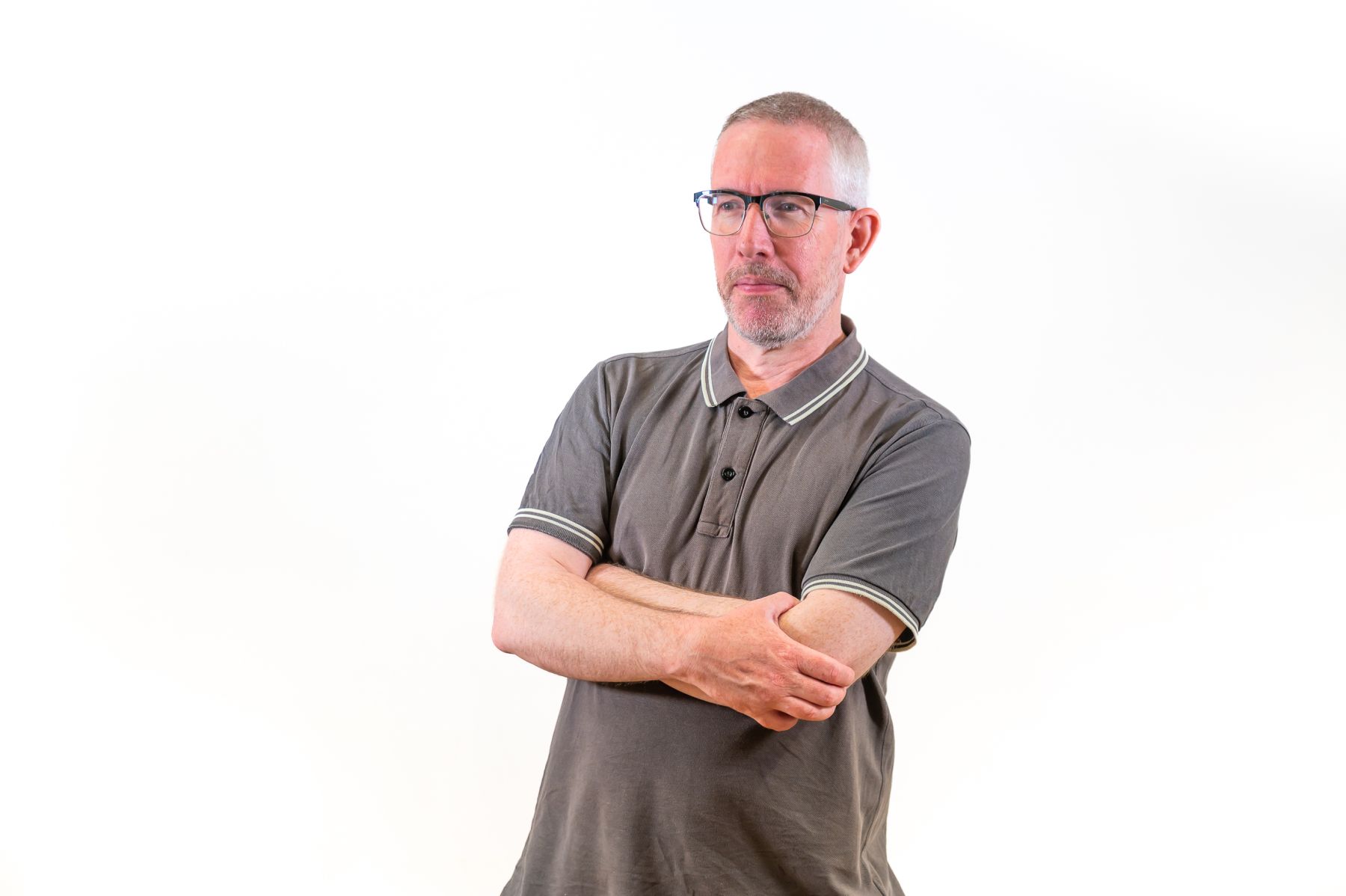
Steve Parker
Senior Lecturer
Steve’s professional career includes production, songwriting, remixing, session playing, engineering, mixing, arranging and composition. As a writer and producer Steve worked in partnership with Pete Waterman for over a decade, developing projects and achieving releases on all major record labels (BMG, Sony, Warner, EMI, Universal, Jive/Zomba) and working on music projects for national TV and live events. Steve has achieved numerous top 40 singles and albums, attaining 11 platinum album sales. As a remixer, credits include well-known names such as Britney Spears and Kylie Minogue along with many more underground artists, achieving numerous number 1 dance chart positions. Steve believes that listening to and analysis of a wide range of material, coupled with a solid theoretical understanding is key to broadening your understanding of songwriting and of production and arrangement. His extensive experience helps students develop the practical skills and the work ethic and judgment required for a professional career.
Steve leads sessions in songwriting and in music production, delivering lectures, practical workshops, seminars and one-to-one sessions. He takes a practical task-based approach to teaching and developing skills and holds dear the belief that being able to realise your songs and musical ideas as effective demos is vital for any musician working in the music industry today.
Steve’s professional industry experience informs all aspects of his teaching, experiences such as working to deadlines, making decisions, understanding commercial briefs, analysing and understanding unfamiliar styles of music, and being able to realise commercially viable products are central to the experiences he tries to create for students. Steve is acutely aware that while you’re not always fortunate enough to work on what you want, what you create still has to be musically effective.
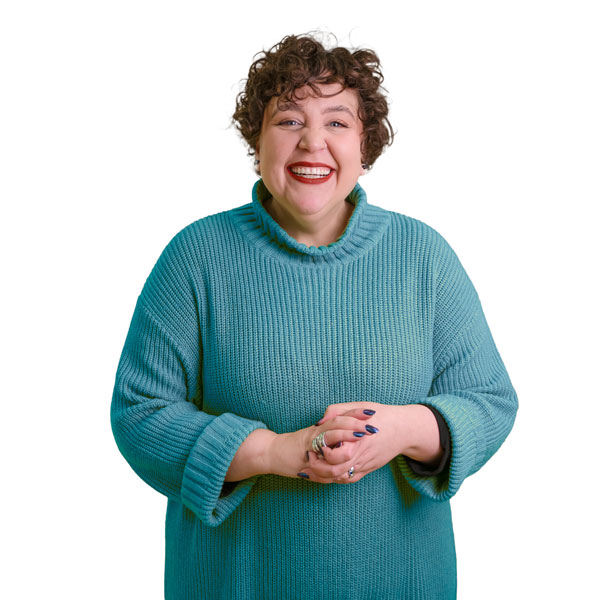
Dr Dori Howard
Lecturer
Dori is a popular music researcher and writer. She is one of fewer than 100 people in the world to hold an MA in the Beatles, Popular Music and Society, and she has a PhD in Popular Music. Her key research interests are the Beatles and Liverpool, genre studies, and popular music ethnography. More recently, her research focuses on gender and embodiment in popular music.
Dori is a public speaker on the Beatles and other popular music topics and has been consulted in online, print, and television media considerations of popular music, including BBC World News. She is a member of the International Association of Popular Music (IASPM UK and USA).
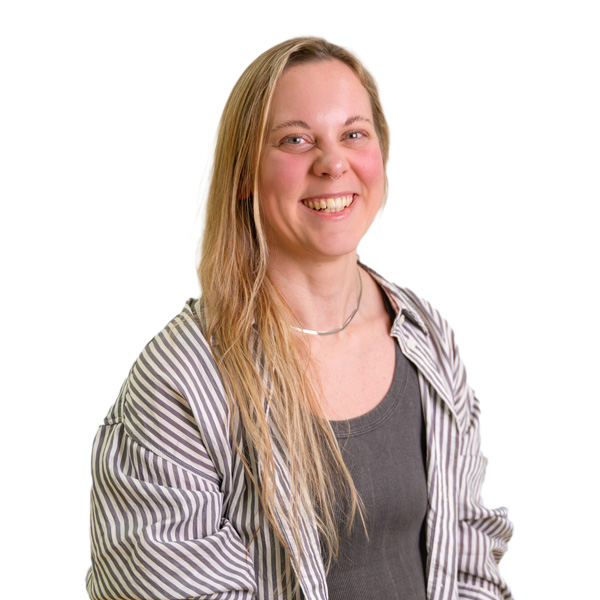
Dr Veronica Skrimsjö
Lecturer
Veronica has a BA (Hons.) and MA in popular music studies, and a PhD that focused on popular music, aesthetics, and record collecting. She has been teaching at HE-level since 2009 and is a fellow of the HEA.
Veronica’s research is primarily concerned with record collecting and collecting cultures, materiality and aesthetics. One of her main aims is to highlight how diverse and active popular music fandom and consumption is, and she has a clear focus on the listener and reader-response theories. In 2016 she published the book ‘I, Me, Mine?’: An Initial Consideration of (Popular Music Record) Collecting Aesthetics, Identities & Practices, and more recently published the book The Vinyl Revival, Gender, and Collecting Aesthetics.
Veronica is the co-chair and a founding member of the Society for Music Production Research (SMPR), and the Journal of Music Production (Intellect Books), and sits on the editorial board for The British Pop Archive book series (Manchester University Press). She regularly provides research commentary for various media, including radio, television, and print, and she is the sole owner of the Cunard Yanks record collection.
Selected publications/research
‘I, Me, Mine?’: An Initial Consideration of (Popular Music Record) Collecting Aesthetics, Identities & Practices (2016)
The Vinyl Revival, Gender, and Collecting Aesthetics (2025)
A selection of shorter works is available via www.veronicasvinyl.com

Bob James
Lecturer
Bob has over 30 years of music industry experience including working in publishing, record labels, management, digital and other areas of exploitation of intellectual copyright. During this time, he has built up a strong network of contacts in Los Angeles, New York, Nashville, Germany and Asia as well as the UK.
Bob was founder and former CEO of Music House, which was the UK’s largest and most successful independent music promotions company. It worked with most of the UK and Europe’s largest labels and artists on club, radio, TV and international promotions.
He left Music House in 2002 to set up Asylum, managing the careers of various song writing and production teams including DEEKAY Music in Copenhagen and has through strategic co-writing and artist development built relationships with most of the major songwriters and producers worldwide. His writing and production credits have been responsible for over 60 million records sold.
Artist management included a selection of platinum selling acts, including Misteeq, and he has developed acts that have involved Randy Jackson (American Idol) and Mick Fleetwood (Fleetwood Mac).
Bob was instrumental in the negotiation of the first ever digital deal with Universal Records and has done ground-breaking deals for his artists involving major brands, including Motorola.
Still an active manager, Bob’s roster of artists includes Kelvin Jones (gold and platinum selling artist in Germany) and Hannah Trigwell. He has been a consultant to Arista Records (BMG) and EMI Records and been part of a production team with projects signed to Warners, MCA and Telstar Records.
Bob now runs Get Money from Music, where he mentors and coaches' songwriters, producers, recording artists and music industry entrepreneurs. He regularly sits on industry panels and lectures on the music industry and new business models across the UK and Europe.
Bob currently works on the MPP modules and mentors' performance, songwriting and production students at LIPA. He provides feedback, support and guidance as he uses his experience to guide students on the best way to navigate the music industry.
Through his years of experience Bob has learnt that artists need support not only in business but also with their mindset and creativity. Before entering the creative industries, you need to learn how to understand and deal with the pressures you will be under, be your authentic self and have the right knowledge to help you navigate your way to success. Bob’s role with students is to help them create possibility.
Paul Mitchell-Davidson
Lecturer
Paul has been a professional musician for over 50 years, starting out in pop music before moving on to jazz and classical. His career has spanned radio, TV, theatre and dance and he has worked as a studio session musician for radio and TV as well as a composer, arranger, musical director, conductor and performer. Paul has arranged for pop and rock acts including rap artist Red Venom, N-Trance and China Crisis. Having worked in most areas of the music profession at the highest level, he is able to pass on the techniques and pragmatic elements involved in making a living writing music.

Joe Duddell
Teaching Fellow
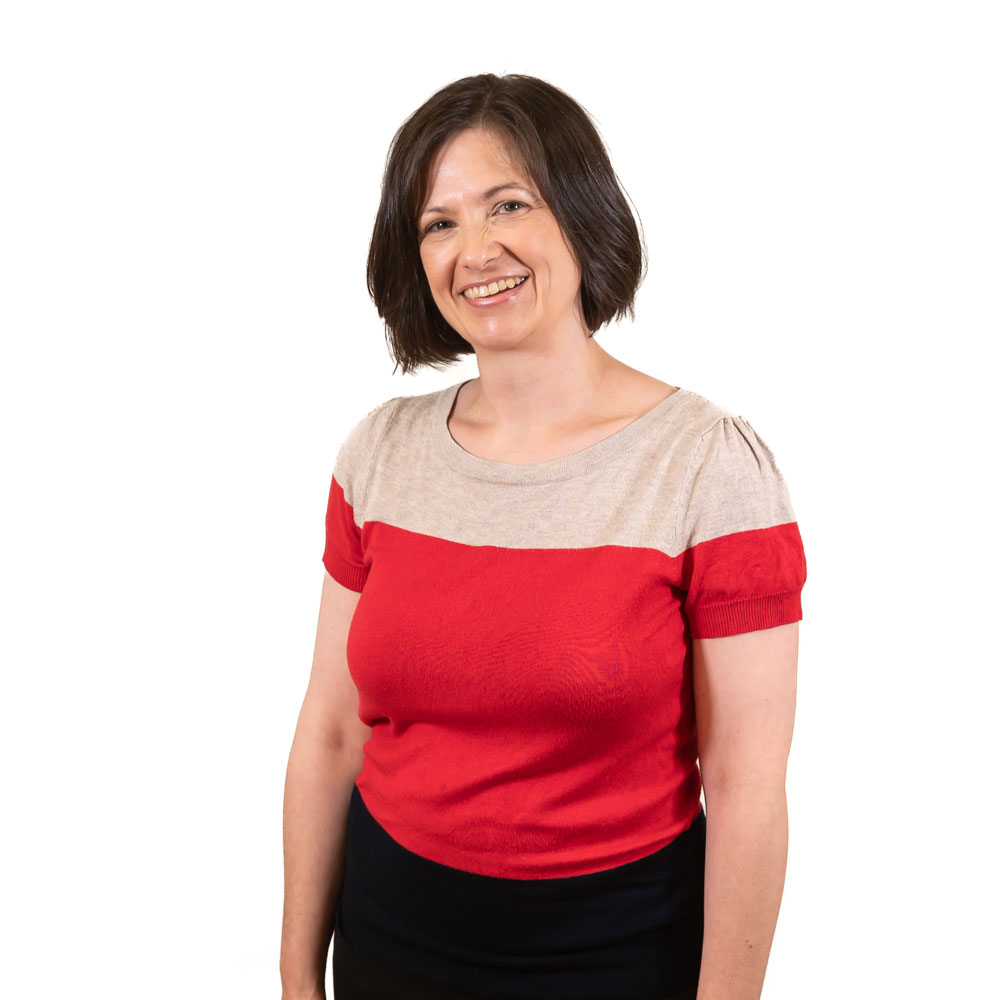
Kate Blair
Teaching Fellow
Kate is a singer-musician who has enjoyed a dual career as a performer and teacher since the early 2000s. An experienced vocal and performance coach holding both a PGCE and an MA by Research in Vocal Pedagogy, Kate has a particular interest in working with pop/rock artists in order to develop their individual sound and the expressive skills required for effective live and recorded performance.
Kate specialises in contemporary vocal technique, rooted in an in-depth knowledge of the anatomy and physiology of the voice and 'voice science'. Having trained extensively with international voice pedagogues in a wide-range of areas such as Estill Voice Training, Accent Method and Primal Voice, Kate continues to develop her teaching and performance practice, keeping up to date with the latest research.
Vocal health and rehabilitation are key areas of Kate’s practice and she is an active member of The British Voice Association, regularly working and training alongside interdisciplinary voice professionals, such as speech and language therapists. Kate works with singers to develop efficient vocal technique and an understanding of how to look after the voice, reducing the risk of vocal fatigue and other vocal issues which may arise as a result of busy gigging and recording schedules. This technique also underpins the exploration of the capabilities of the vocal instrument and the development of the artist’s individual sound and expressive performance.
Kate's approach is holistic and she draws on a wide range of research and related practice in order to develop the skills required by the contemporary singer and artist-songwriter. Kate’s research interests include interdisciplinary approaches to contemporary singer training; her postgraduate research focussing on Laban technique and Michael Chekhov technique. Her current research centres on somatic movement practices and how they may be utilised in order to build healthy vocal technique and to develop stage skills such as physical expression, emotional connection, stage presence and artist persona. Kate plans to extend this work to explore the use of physical techniques in combination with other approaches, such as Primal Sound.
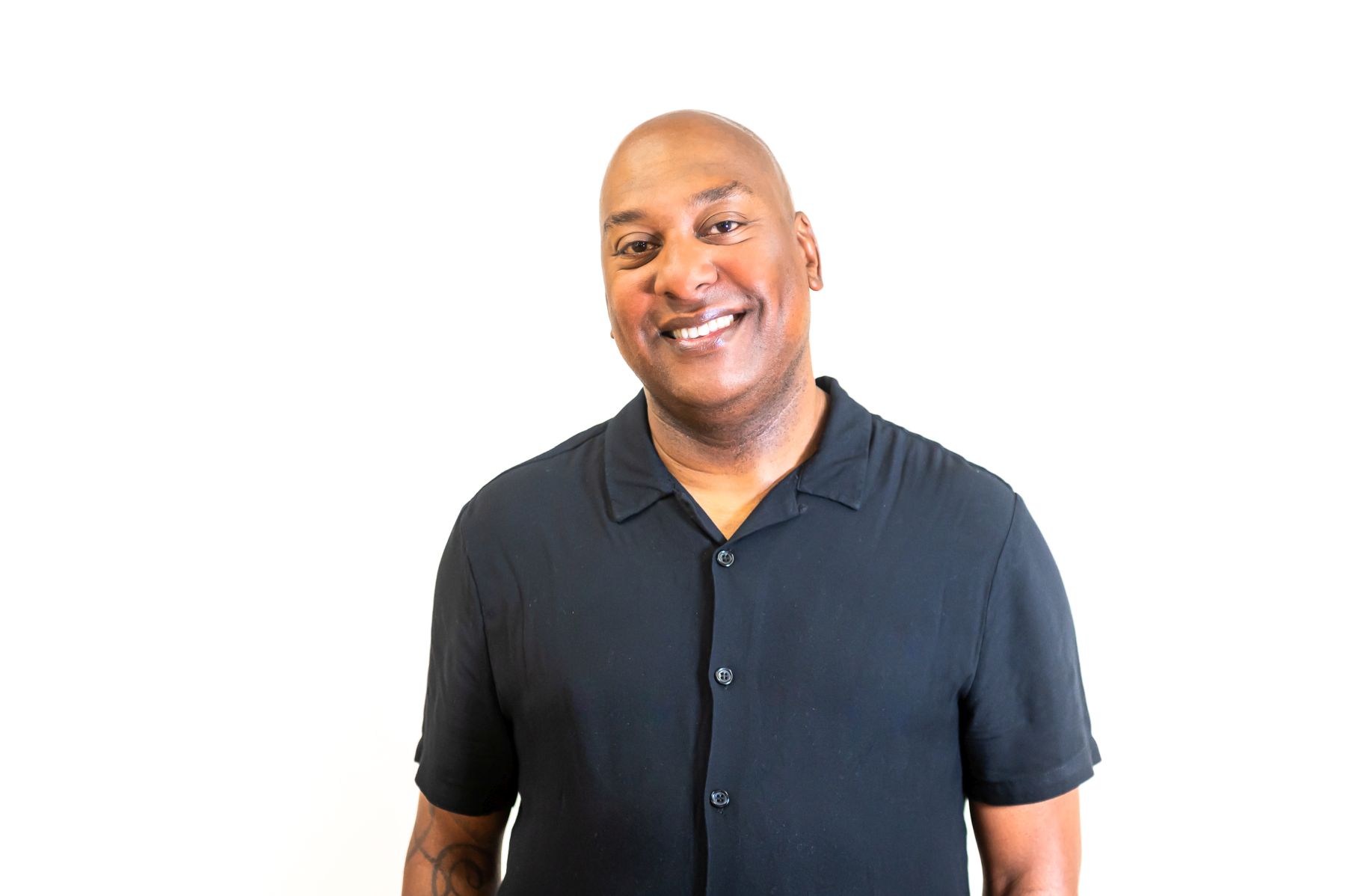
Carl Parris
Lecturer
Carl is an experienced dancer, singer and actor performing across all genres. He made his film debut in Superman 2 aged eight-years-old, his West End debut, as an eleven-year-old, in Bugsy Malone and rehearsed with Hollywood legend Gene Kelly for a Royal Command Performance. Carl’s other theatre credits include Cats, Anything Goes, Fame and Smokey Joe's Cafe. His film and TV work includes Jesus Christ Superstar, Gulliver’s Travels, Muppets Most Wanted, Game of Thrones, House of Dragon and Wicked Parts 1 and 2. Carl helped create work with Lloyd Newson on JOHN as part of the DV8 Physical Theatre company. He was also resident choreographer at the Hackney Empire. Carl's vast experience allows him to tap into different methods and styles to empower, nurture and instil confidence in his students.
What Our
Graduates Do
Our Music (Contemporary Pop Voice & Performance) pathway is new. Achievements of graduates from our Music degree have included:
Katya Edwards (2016)
Co-wrote About You by Tyron Hapi & Laurell which went Gold in Australia. Other credits include My Way with One Bit featuring Noah Cyrus.
Eline Brun (2016)
Member of the band I See Rivers. They released their debut album, Deep and Rolling Green, to critical acclaim in 2020.
Gøril Nilsen (2016)
Member of the band I See Rivers. They released their debut album, Deep and Rolling Green, to critical acclaim in 2020.
Lill Scheie (2017)
Member of the band I See Rivers. They released their debut album, Deep and Rolling Green, to critical acclaim in 2020.
Katie Tarrant (2016)
Composer and audio designer for games company Rare. Credits include Sea of Thieves.
Sophie Cooke (2015)
Her songwriting credits include co-writing Jess Glynne’s hit All I Am, Dua Lipa’s Hallucinate and Katy Perry’s Only Love. Performing as Frances, she was nominated for a BRITS Critics’ Choice Award and her second album, Wonder, was released in 2021.
Gemma Dunleavy (2014)
Her song Up De Flats was nominated for RTE (Irish national broadcaster) Song of the Year 2020. Recent collaborations include DJ Simon Raymonde and a Dr Martens campaign.
Caroline Ailin (2012)
Songwriter who co-wrote Dua Lipa’s New Rules. Has also written for Katy Perry, Ellie Goulding and Clean Bandit
Dan Croll (2011)
Singer-songwriter who released his third album Grand Plan in 2020. His music’s been used on ads for iPhone and FIFA and Grand Theft Auto games.
Jessica Staveley-Taylor (2010)
Makes up one third of The Staves, along with her sisters. Their 2021 album Good Woman entered the UK charts at number 13.
Hannah Peel (2004)
Artist, producer and BBC Radio Three presenter. Her album Fir Wave was nominated for a 2021 Hyundai Mercury Music Prize. Wrote the soundtrack for Game of Thrones: The Last Watch and orchestrated and conducted on three Paul Weller albums.
Liam Lynch (1998)
Musician, songwriter, filmmaker. Co-wrote music for School of Rock, co-wrote and produced soundtrack for Tenacious D in the Pick of Destiny. Directed videos for Foo Fighters, They Might Be Giants and ‘Weird Al’ Yankovic.
Performance and showcase opportunities
There's no shortage of opportunities for students to hone and showcase their abilities as performers and songwriters. These include regular gig nights, industry A&R sessions and a full-scale music festival. Off campus there's the chance to become part of Liverpool's eclectic, culturally diverse and flourishing music scene. Our students have been regular performers at venues in the city including The Cavern, QUARRY and The Jacaranda.
To see our students in action head over to YouTube for showcase performances from our festival The 2ube Xtra 2023. You can also see photos of them performing - including at our Christmas Concert - over at FLICKR.
Related
News

Three LIPA grads part of Legally Blonde tour

Management Student Della becomes first Cypriot to win prestigious award

Winter/Spring season of public performances

Gallery: Term one productions 2025/26

A busy and creative Christmas for LIPA grads

LIPA secures £2.5m Office for Students capital funding to deliver new performance and digital innovation hub

WATCH: Apple advert ft. music by grad Hannah Peel

Bruce Springsteen Q&A: ‘Always bet on yourself’

LIPA and Sefton Council join forces to bring fresh creative energy to Salt and Tar

LIPA named a Billboard Top Music Business School for a fifth consecutive time

Masterclass helps Management students understand the power of metadata

Autumn/Winter Season of public performances

LIPA achieves major milestone: new degree awarding powers

Gallery: Graduation 2025

Sir Paul McCartney honours leading arts figures at LIPA graduation

LIPA grads and students head to Edinburgh Fringe

LIPA grads win prestigious music production awards

New musical The Gardening Club set for London run

LIPA’s festival of new music to showcase 60 artists

PippaFest: Music grad organises festival in memory of her sister

LIPA Sound Tech and Music grads nominated for top music production awards

Research: Gen Z the driving force behind vinyl’s resurgence

Watch: What's it like to perform at the Liverpool Philharmonic Hall?

LIPA grads get creative for Christmas

Gallery: LIPA Christmas Concert

LIPA to co-host major international music education conference

Jamie Webster and Alfie Skelly take a deep dive into the artist-manager relationship

Watch: The Wombats collaborate with fellow grad on new video

LIPA part of £7m boost for Liverpool’s music scene

Watch: Performing with Elvis Costello and being a horn player at LIPA

Research: Music, gender and visual analysis

Pixie Lott at LIPA

Elvis Costello thrilled with LIPA Horn Section collaboration

LIPA shortlisted for environmental award

LIPA brass players to perform with Elvis Costello

LIPA grads and students at Edinburgh Fringe

Gallery: Graduation 2024

Award-winning LIPA grad honoured by Sir Paul McCartney

Profile: Lydia Shute – singer/songwriter

WATCH: 2ube Xtra - LIPA’s student run music festival

LIPA supports Africa Oyé

Gallery: LIPA students take part in Queen Anne naming ceremony

Insta audition leads to UK tour

"We felt almost every emotion at once": LIPA graduate triumphs at Eurovision

LIPA students and graduates collaborate on new dance show

Twelve day music festival showcases LIPA students

Profile: The Gardening Club - A New Musical
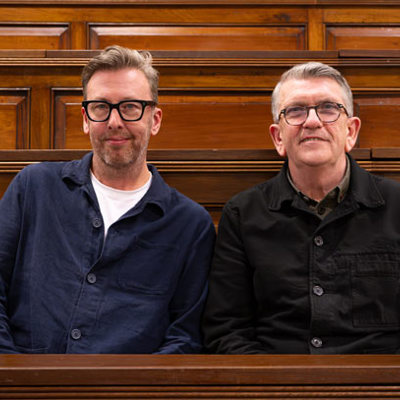
‘The Smiths were authentic’ - drummer Mike Joyce
Educational qualifications are important but limited in what they can tell us about you.
Your natural ability, your fit with what and how we teach, your growth and your potential are also key factors in our admission process. We can’t evaluate these solely on your educational achievements, so no matter which course you are applying for, we look for the following attributes on your application and at the interview stage.
Additional Costs
As part of this course, there are likely to be some additional costs that are not included within your tuition fees. Many of these are optional.
Theory test
Many of the modules on the Music degree rely upon an understanding of music theory. For UK students we want you to have attained a Grade 5 Music theory qualification by the time you enrol with us. The examination fees for the London College of Music Grade 5 Popular Music Theory are around £55. We test you at audition and if you score a high mark we may waive the requirement for a formal Grade 5 Music theory qualification.
Equipment
You will need a pair of headphones for use in the computer and Digital Audio suites.
Besides the usual pads and pens (or laptops), the only other things you will need to bring with you are your creativity, enthusiasm and dedication.
Cost of living
Wherever you choose to study, you'll have to budget for accommodation and other everyday living expenses, such as food and bills.
Accommodation costs are relatively low in Liverpool, particularly compared to the south east of England, and the city's shops and entertainment venues also have lots of student discounts
We’d recommend completing a simple budget plan to predict your income and outgoings. This should include accommodation, bills, insurance, TV licence, food, laundry, clothes, books, travel and socialising. How much you'll want to spend on a lot of these is completely personal.
There is lots of advice available online about budgeting:
- UCAS budget calculator is a great tool to help you balance your in-comings and out-goings.
- SaveTheStudent provides useful information on student money resources, including loans, budgeting, and scholarship sources.
Most UK students will be able to take out a maintenance loan to assist with living costs and there are some grants available. We also offer some bursaries. To find out more, please see Student Finance and bursaries.
Because our courses are intensive and we have a busy season of student performances, options for part-time work during our teaching periods can be limited. However, many of our students gain flexible part-time work, in performance venues, shops, restaurants and bars. We also provide casual work opportunities for our students ranging from stewarding work on our productions to working with young people to help us widen access to our courses. The long summer break is when many of our students choose to work.
Additional Costs
As part of this course, there are likely to be some additional costs that are not included within your tuition fees. Many of these are optional.
Theory test
Many of the modules on the Music degree rely upon an understanding of music theory. For UK students we want you to have attained a Grade 5 Music theory qualification by the time you enrol with us. The examination fees for the London College of Music Grade 5 Popular Music Theory are around £55. We test you at audition and if you score a high mark we may waive the requirement for a formal Grade 5 Music theory qualification.
Equipment
You will need a pair of headphones for use in the computer and Digital Audio suites.
Besides the usual pads and pens (or laptops), the only other things you will need to bring with you are your creativity, enthusiasm and dedication.
Cost of living
Wherever you choose to study, you'll have to budget for accommodation and other everyday living expenses, such as food and bills.
Accommodation costs are relatively low in Liverpool, particularly compared to the south east of England, and the city's shops and entertainment venues also have lots of student discounts.
We’d recommend completing a simple budget plan to predict your income and outgoings. This should include accommodation, bills, insurance, TV licence, food, laundry, clothes, books, travel and socialising. How much you'll want to spend on a lot of these is completely personal.
There is lots of advice available online about budgeting:
- UCAS budget calculator is a great tool to help you balance your in-comings and out-goings.
- SaveTheStudent provides useful information on student money resources, including loans, budgeting, and scholarship sources.
Most UK students will be able to take out a maintenance loan to assist with living costs and there are some grants available. We also offer some bursaries. To find out more, please see Student Finance and bursaries.
Because our courses are intensive and we have a busy season of student performances, options for part-time work during our teaching periods can be limited. However, many of our students gain flexible part-time work, in performance venues, shops, restaurants and bars. We also provide casual work opportunities for our students ranging from stewarding work on our productions to working with young people to help us widen access to our courses. The long summer break is when many of our students choose to work.
Additional International student costs
UKVI English language requirements
If you are not from a majority English speaking country (as determined by UKVI), you will be required to establish to LIPA that you meet UVKI minimum standards for English language before getting a Confirmation of Acceptance for Studies (CAS) number. The CAS number we issue you allows you to begin the visa application process. There is no requirement for a student to evidence their English language qualification at the point of application, audition or interview.
Students who accept a place on Certificate of HE Foundation Acting (Musical Theatre) or Certificate of HE Foundation Acting (Stage & Screen) must sit a UKVI-approved Secure English Language Test (SELT). The cost of a SELT can range from approximately £180 - £250. You may also incur travel costs to your closest test centre.
Students who accept a place on an undergraduate or postgraduate course may have the opportunity to evidence their English language through a qualification from another country which meets LIPA’s assessment of its academic suitability, take a UKVI-approved Secure English Language Test (SELT), or completing and passing a LIPA Institutional Assessment of English. The cost of a SELT can range from approximately £180 - £250. You may also incur travel costs to your closest test centre. A LIPA Institutional Assessment of English is free of charge.
Student visa
All international students who do not hold a United Kingdom of Great Britain and Northern Ireland passport; a Republic of Ireland passport; or EU Settled Status (EUSS), will require a Student visa to study in the UK.
The Student visa application fee in 2025 was £490. Some students will need to have their biometrics taken as part of the visa application process and this may incur additional costs, notably travel costs to your nearest Visa Application Centre.
In addition to the application fee, you are required to pay the Immigration Health Surcharge, which gives you access to the UK’s National Health Service (NHS). Once your course starts, any medical treatment you require in the UK will be free of any further charges if you use the NHS, just as it is for UK nationals. The surcharge is compulsory, even if you hold private healthcare insurance. 2025 surcharge costs were as follows:
- Foundation and Certificate of HE programmes: £776
- Undergraduate (BA) programmes: £2,716
- Postgraduate (MA) programmes: £1,164
The surcharge will give access to NHS healthcare services from your arrival in the UK until the date your visa expires.
Accommodation
Some accommodation providers may require international students to pay a larger deposit, or pay for their accommodation in fewer, larger instalments. This is something individual students will need to discuss with their accommodation provider.
View the programme specification on LIPA's course catalogue.






